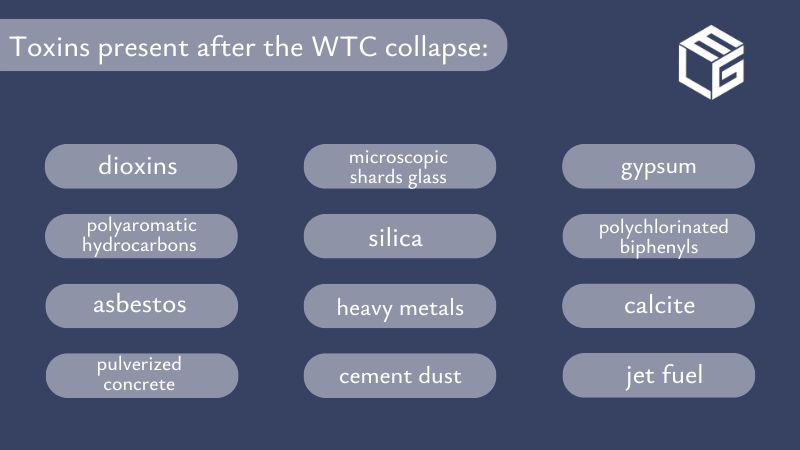-
About »
- Insulin MDL
-
Cases »
- Diseases
- Testimonials
- Government
- Contact
- Get Help Now
-

Jet fuel largely contributed to the devastation of the World Trade Center during the horrific events of 9/11. Jet fuel, like JP-5, JP-8, and Jet A, is a flammable, volatile substance used to power aircraft engines.
The hijacked planes carried gallons of jet fuel, which ignited upon impact. In turn, this created intense fires within the Twin Towers. The burning jet fuel circulated into the surrounding air, exposing thousands of victims to its toxic fumes.
Claim ApplicationJet fuel is a toxic substance that was present in the 9/11 exposure zone. Four hundred thousand disaster response teams and civilians came in contact with jet fuel and its harmful health effects.
The U.S. Department of Health and Human Services (DHHS) and the U.S. Environmental Protection Agency (EPA) have not classified these fuels as carcinogens. However, the International Agency for Research on Cancer (IARC) lists them as group 3 carcinogens, meaning there isn't enough evidence to determine if they cause cancer in humans.
Despite being unclassified carcinogens, jet fuels still contain several chemicals that are not only known carcinogens but are also known to cause a range of diseases. These fuels contain hazardous substances, such as naphthalene, ethylbenzene, and benzene, linked to leukemia.
A number of studies reveal that there is a connection between jet fuel exposure and the emergence of the following diseases:
Were you exposed to jet fuel's hazardous fumes during and after the 9/11 disaster? If you were, then you may qualify for compensation. Those with health conditions that can be linked to the Twin Towers tragedy can gain benefits through the 9/11 Victim Compensation Fund (VCF). The competent attorneys of ELG Law can provide legal guidance. File your 9/11 VCF claim for jet fuel exposure today with ELG Law.